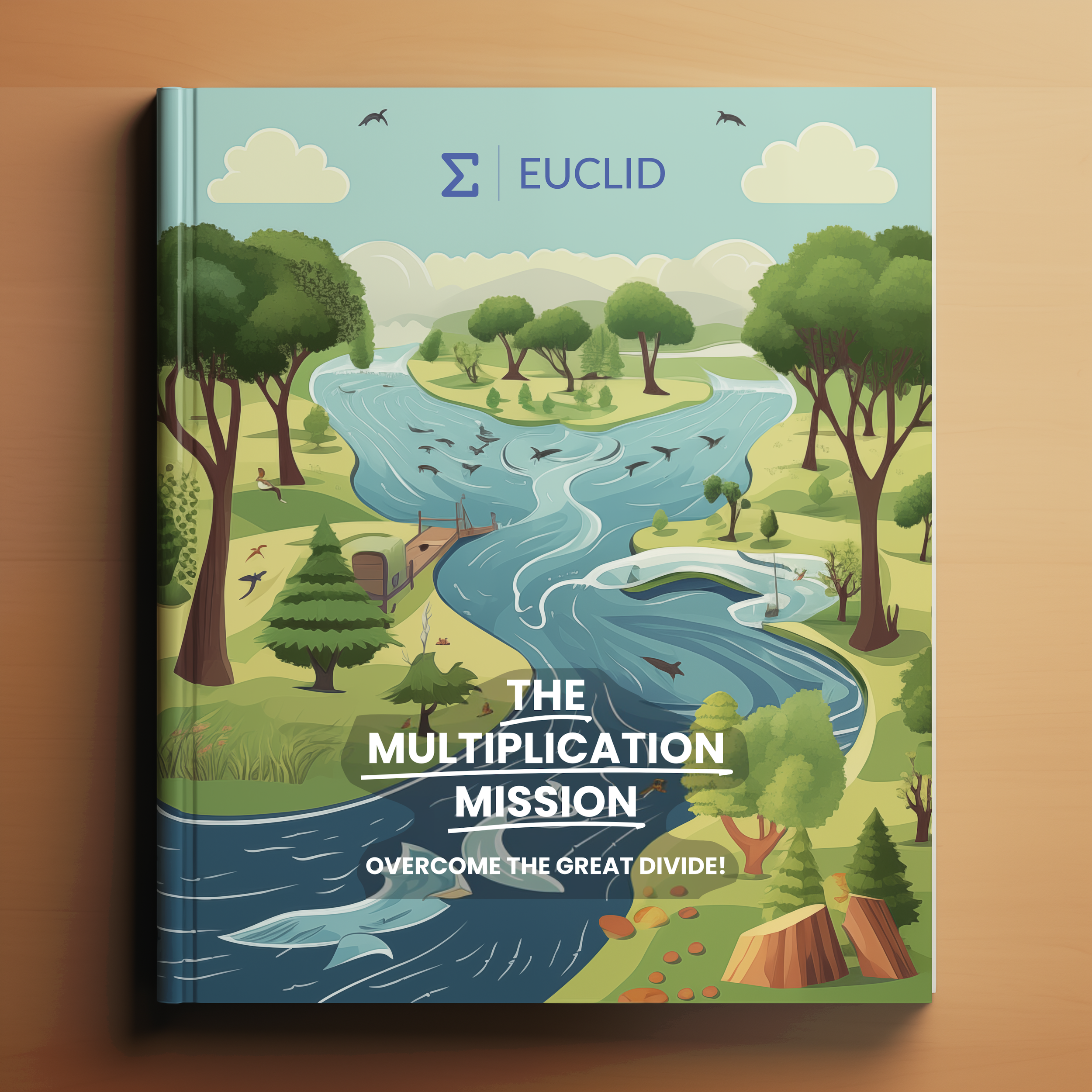6th-7th Grade
—Preorders for our next restock are now available —
In A Bridge Beyond Numbers, students will practice new skills around algebraic thinking and geometry while continuing to build skills in number operations (such as with rational and negative numbers) and geometry (such as working with angles and three dimensional shapes).
Check out samples and detailed curriculum below ⬇️
Curriculum
1. Number Sense and Operations
Rational Numbers: Understanding and performing operations with rational numbers (including negatives), such as addition, subtraction, multiplication, and division.
Decimal Operations: Mastery in operations with decimals, including their applications in real-world contexts.
Fraction Operations: Deepening the understanding of fractions, including operations with fractions and mixed numbers.
2. Algebra and Algebraic Thinking
Expressions and Equations: Simplifying expressions, understanding and solving algebraic equations, and inequalities.
Proportional Relationships: Identifying and representing proportional relationships, understanding unit rates, and solving problems involving proportional reasoning.
Linear Equations: Introduction to linear equations and their graphs, including the concept of slope and y-intercept.
3. Geometry
Geometric Figures: Understanding properties of two-dimensional figures (angles, circles, triangles, quadrilaterals) and three-dimensional shapes (volume and surface area calculations).
Scale Drawings: Working with scale drawings and understanding similarity in terms of geometric shapes.
Angles and Construction: Measuring angles, constructing geometric figures, and understanding the relationships between angles.
4. Measurement and Data
Statistical Measures: Understanding and calculating measures of central tendency (mean, median, mode) and variability (range, interquartile range).
Data Representation: Representing and interpreting data using graphs (box plots, histograms, dot plots).
Probability: Basic probability concepts, including simple experiments and compound events.
5. Problem Solving and Critical Thinking
Developing problem-solving strategies and critical thinking skills through real-world applications and mathematical investigations.
Encouraging mathematical reasoning, communication, and the ability to make connections between mathematical concepts and everyday life.
6. Mathematical Practices
Cultivating a mathematical mindset, including persistence in solving problems, reasoning abstractly and quantitatively, constructing viable arguments, and critiquing the reasoning of others.






